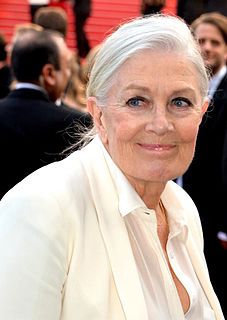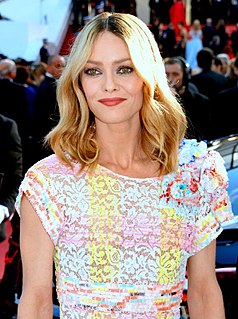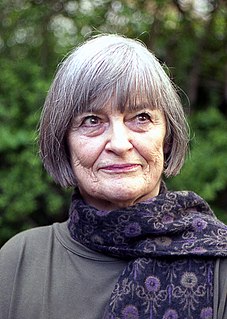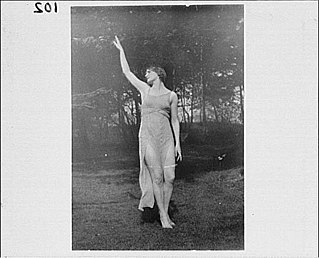
Vanessa Redgrave is an English actress and activist. Proclaimed as the "Greatest Actress of our Time" by Tennessee Williams, Redgrave is the recipient of the Triple Crown of Acting, and was inducted to the American Theatre Hall of Fame, and received the BAFTA Fellowship.

Howards End is a 1992 romantic drama film based upon the 1910 novel of the same name by E. M. Forster, a story of class relations in turn-of-the-20th-century Britain. The film — produced by Merchant Ivory Productions as their third adaptation of a Forster novel — was the first film to be released by Sony Pictures Classics. The screenplay was written by Ruth Prawer Jhabvala, directed by James Ivory, and produced by Ismail Merchant.

Angela Isadora Duncan was an American dancer who performed to great acclaim throughout Europe. Born and raised in California, she lived and danced in Western Europe and the Soviet Union from the age of 22 until her death at age 50 when her scarf became entangled in the wheels and axle of the car in which she was riding in Nice, France.

Julia is a 1977 American Holocaust drama film directed by Fred Zinnemann, from a screenplay by Alvin Sargent. It is based on a chapter from Lillian Hellman's 1973 book Pentimento about the author's relationship with a lifelong friend, "Julia", who fought against the Nazis in the years prior to World War II. The film stars Jane Fonda, Vanessa Redgrave, Jason Robards, Hal Holbrook, Rosemary Murphy, Maximilian Schell and Meryl Streep.

Bessie Love was an American-British actress who achieved prominence playing innocent, young girls and wholesome leading ladies in silent and early sound films. Her acting career spanned eight decades—from silent film to sound film, including theatre, radio, and television—and her performance in The Broadway Melody (1929) earned her a nomination for the Academy Award for Best Actress.

Karel Reisz was a Czech-born British filmmaker who was active in post–World War II Britain, and one of the pioneers of the new realist strain in British cinema during the 1950s and 1960s.

Morgan – A Suitable Case for Treatment is a 1966 comedy film made by British Lion. It was directed by Karel Reisz and produced by Leon Clore from a screenplay by David Mercer, based on his BBC television play A Suitable Case for Treatment (1962), the leading role at that time being played by Ian Hendry.

Mary, Queen of Scots is a 1971 British-American biographical film based on the life of Mary Stuart, Queen of Scotland, written by John Hale and directed by Charles Jarrott. Leading an all-star cast are Vanessa Redgrave as the title character and Glenda Jackson as Elizabeth I. Jackson had previously played the part of Elizabeth in the BBC TV drama Elizabeth R, screened in February and March 1971, the first episode of which was also written by Hale.

Vanessa Chantal Paradis is a French singer, model and actress.
Francis Martin Sewell Stokes was an English novelist, biographer, playwright, screenwriter, broadcaster and prison visitor. He collaborated on a number of occasions with his brother, Leslie Stokes, an actor and later in life a BBC radio producer, with whom he shared a flat for many years overlooking the British Museum. It was here that Sewell Stokes did much of his writing in the Reading Room, used by so many distinguished writers over the years.
Isadora Duncan, the Biggest Dancer in the World is a BBC TV film based on the life of the American dancer Isadora Duncan first broadcast on 22 September 1966. The film was directed and produced by Ken Russell and written by Sewell Stokes and Russell. It starred Vivian Pickles and Peter Bowles.

Vivian Pickles is an English actress.
L. David Syms-Greene, born Lucius David Syms Brian Lederman, was a British television and film director who was born in Manchester, Lancashire, England, who emigrated to Toronto, Ontario, Canada, in 1953, where he trained in television production with the CBC, and then moved on to Hollywood, California.

The 22nd Cannes Film Festival was held from 8 to 23 May 1969. At this festival a new non-competitive section called "Directors' Fortnight" is added, in response to the cancellation of the 1968 festival.

Lily-Rose Melody Depp is a French-American actress and model, born to parents Johnny Depp and Vanessa Paradis. Depp began her acting career with a small role in Tusk (2014), and went on to star in the period dramas The Dancer (2016), in which she played Isadora Duncan, Planetarium (2016), and The King (2019). Depp has been nominated for two César Awards for Most Promising Actress, for her performances in The Dancer and A Faithful Man (2018), respectively. She won Best Actress award at the 4th Los Angeles Film Awards for her performance in My Last Lullaby (2019).
Isadora is a ballet created for the Royal Ballet by Kenneth MacMillan to music by Richard Rodney Bennett with a scenario by Gillian Freeman, based on the life and dance of Isadora Duncan.

The Dancer is a 2016 French biographical historical drama film directed and written by Stéphanie Di Giusto and co-written by Thomas Bidegain and Sarah Thiebaud, based on the novel by Giovanni Lista. The film stars Soko, Gaspard Ulliel, Mélanie Thierry, Lily-Rose Depp, François Damiens, Louis Garrel and William Houston.
Litz Pisk was a movement teacher and movement director who worked in British theatre.

Elizabeth Duncan (1871–1948) was an American dancer and dance teacher from California who spent much of her life in Germany and the Soviet Union. The elder sister of Isadora Duncan, she dedicated her life to improving dance education and honoring of her sister's legacy. Elizabeth Duncan operated Isadora Duncan's schools during the latter's life.














